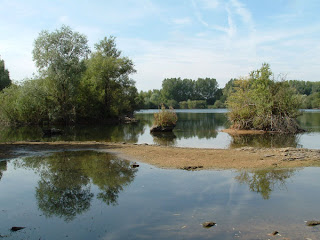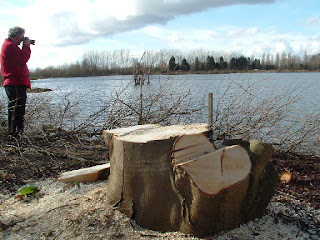As European diplomats drove to inspect the tranquil wildscape of the Rospuda valley in north east Poland two weeks ago, the road behind was blocked by the Polish Road Agency to prevent environmental campaigners from joining them (bankwatch.org). It was a scene more at home in Russia than Poland. Then again, look at what happened at Radley Lakes where npower have harassed protestors with security staff and injunctions.
Strangely, it is an injunction that may save the day in Rospuda, with the EU threatening to slap one on the Polish government to halt its plans to drive the Via Baltica motorway through one of Europe's most pristine wildernesses. If you drop into the Bower Arms at Radley, the landlord calls out "how's it going?" He does not mean how are you? His concern is the campaign to save Thrupp Lake, the same concern that nearly everyone in the local community shares. But in Augustow in the Rospuda Valley, the townspeople seem to be wholeheartedly in favour of the Via Baltica. It will be their longed for bypass. At Radley there are easy but more expensive alternatives to the destruction of Thrupp Lake. At Rospuda, the alternatives cut through communities and sweep away houses.
So perhaps these two campaigns have nothing in common? They do. The passion of the campaigners and the determination and power of their opponents for a start. And the fact that the arrival of nesting birds has stopped destruction of both sites for now. Also both battles show that no matter how clear cut the case may be for preserving a landscape, campaigning nearly always proves to be extraordinarily complex. And because campaigning is not simple, you need to dig in for the long term and not waver one bit.
That's the Three Rs of the environment. Its not Rospuda, Rights and Radley but Respect for landscapes, Regard for local communities - even when you disagree with them - and Resolution in campaigning against the fiercest and most powerful of opponents.
My thanks to the British Council in Poland for hosting a dialogue between myself and eight Polish environmental campaigners in Warsaw last weekend.
Thrupp Lake at Radley in March 2007


